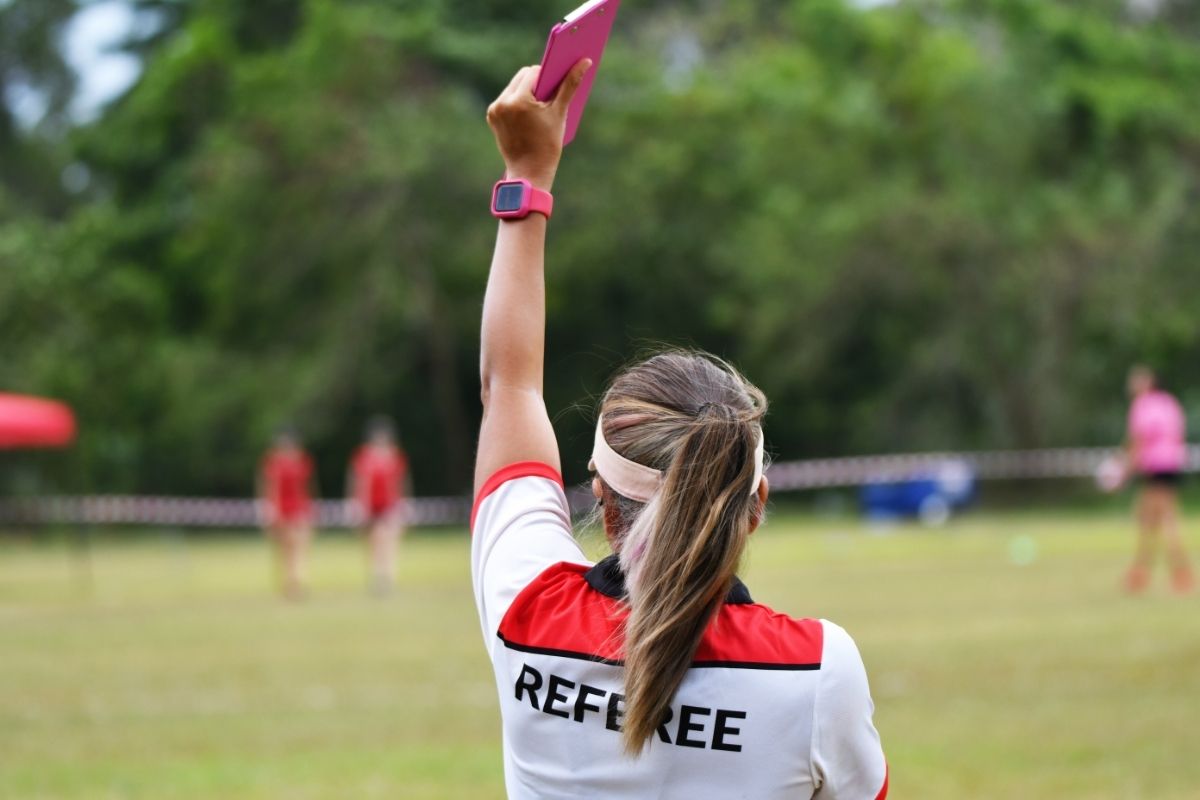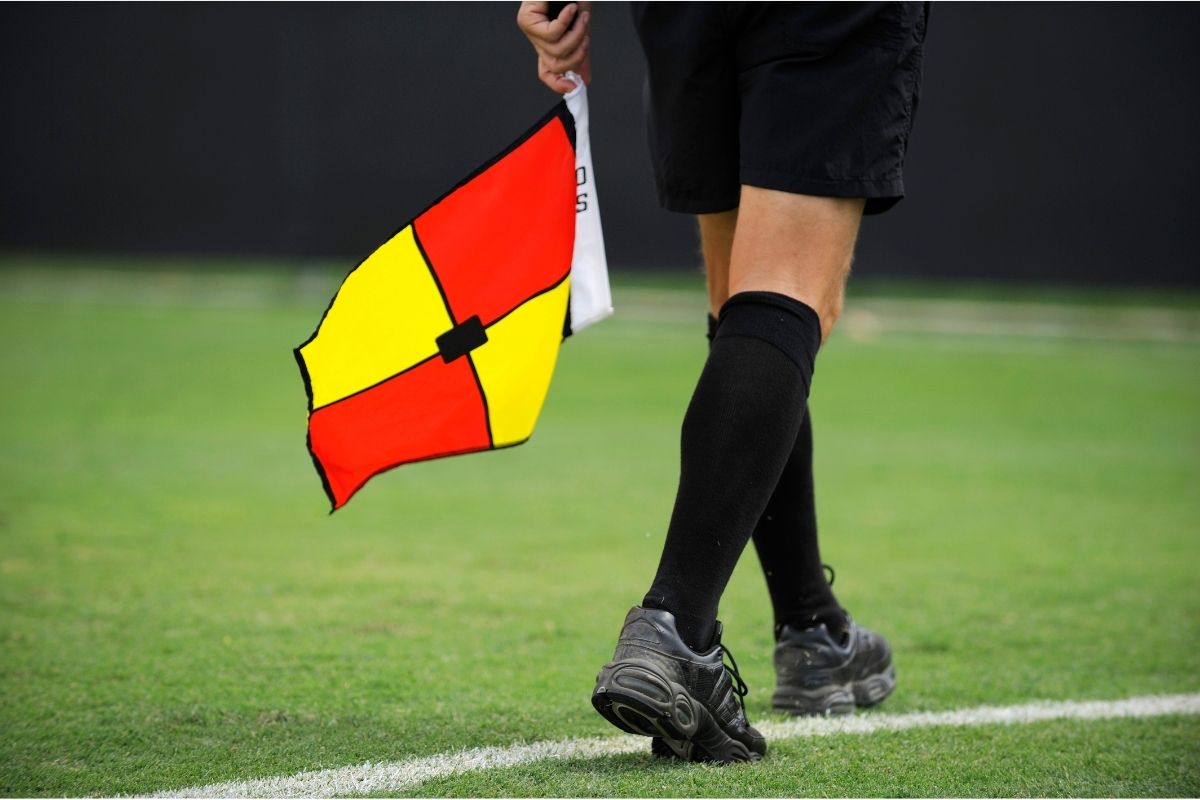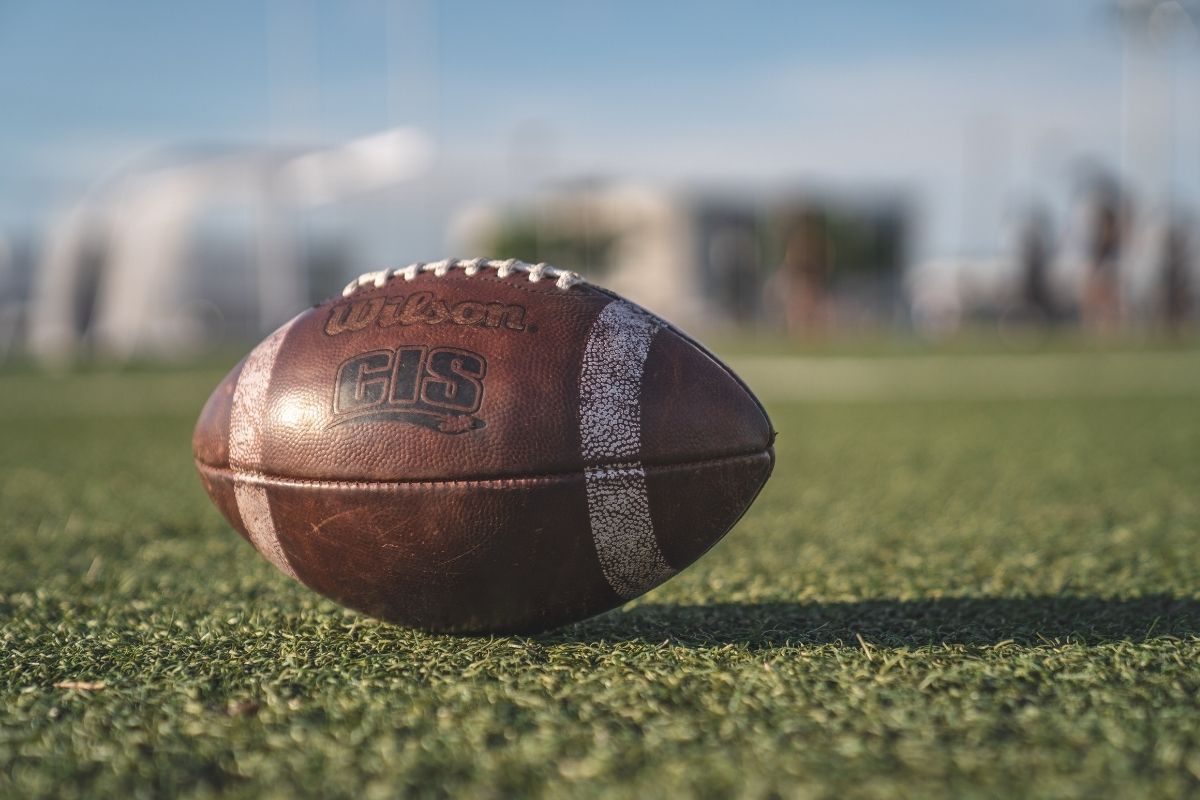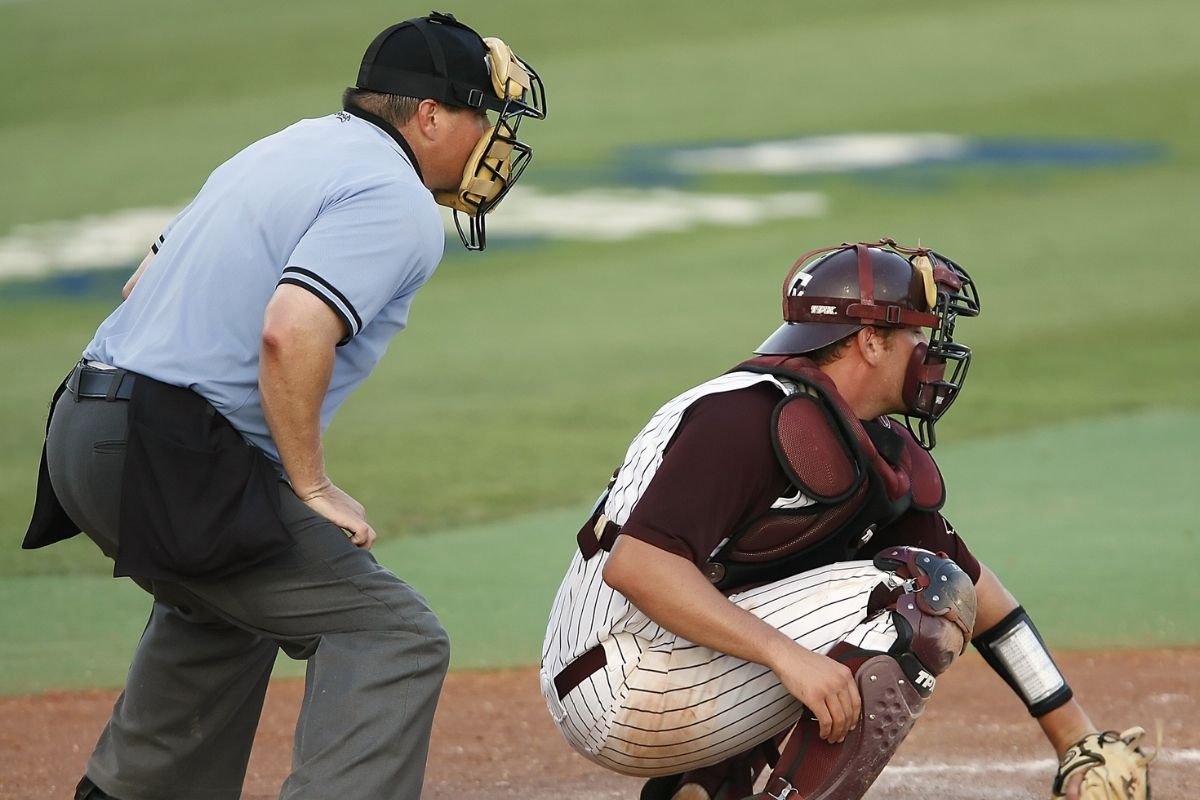Baseball is a popular sport that many people enjoy. In America, baseball is divided into many leagues, but the two main and most popular are the Minor and Major Baseball League.
The beauty of baseball is that if you are passionate about the game and you want to make a career out of it, there a quite a few different positions and roles you can try out for.
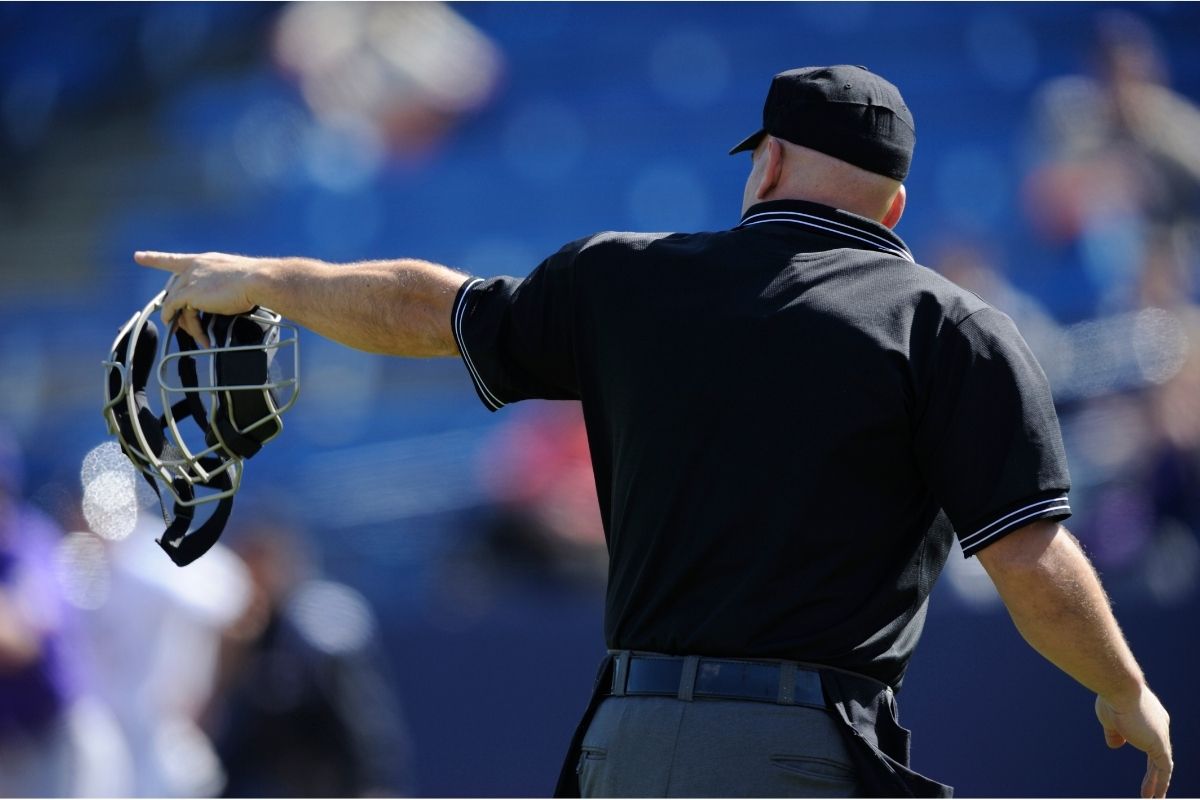

One of these roles is the Baseball Umpire… but how do you become one?
In this article, we will be going over how you can become a Baseball Umpire in the Minor or Major Baseball Leagues.
What Is An Umpire?
Baseball umpires are in charge of enforcing the on-field rules of the game. They are in charge of judgments and decisions. In a lot of ways, they are like the baseball equivalent of soccer referees.
In a standard baseball game, there are usually four umpires present. You’ll have the main umpire stationed on the home base, which is the base you bat towards, and the other three umpires will be stationed at the other three bases.
Basic Requirements Of Becoming An Umpire
Before you go through the necessary steps of becoming a Minor or Major League Baseball Umpire, you need to know the basic requirements. If you don’t meet these requirements, you simply can’t go on to be a baseball umpire.
Umpires need to be at least 18 years old and have completed their high school education and received their high school diploma, or got their GED.
You also need good communication skills as communication is one of the most important skills an umpire must possess.
All umpires need 20/20 vision, this applies to glass and contact lenses as well as without either. Some athletic ability is important and you need very fast reflexes. You also need very good physical coordination.
Because baseball umpires travel a lot during the baseball season, it is important to keep your health in a generally good place.
If you do not meet all of these requirements, you will find it quite difficult to become a professional umpire in the Minor and Major leagues, so before you start spending money on the MLB Umpire School, make sure you fit the criteria.
MLB Umpire School
So if you’ve met the above criteria and requirements, you can apply to one of the three Major League Baseball Umpire Schools. You have a choice of one of the following schools to join:
The Umpire School in Florida, Harry Wendelstedt Umpire School in Michigan, or Jim Evans Academy of Professional Umpiring in Colorado.
It is important to note that if you are planning on joining one of these schools, you have to be committed to becoming an umpire as admission is quite expensive.
The MLB Umpire Schools usually run between three and five weeks in the months of January and February.
During your time at one of these Umpire Schools, you learn everything you need to know about baseball. You learn the mechanics, the rules, and the signals you would need for the game.
Your umpire education will be split between the classroom and practical fieldwork.
There can be up to 100 people in your class, but only the top graduates will be invited to attend the MLB Umpire Evaluation Class.
It can be quite hard to stand out amongst that many people to ensure you make it to the next stage but be confident, committed, passionate and hardworking and you’ll be more likely to graduate at the top of your class.
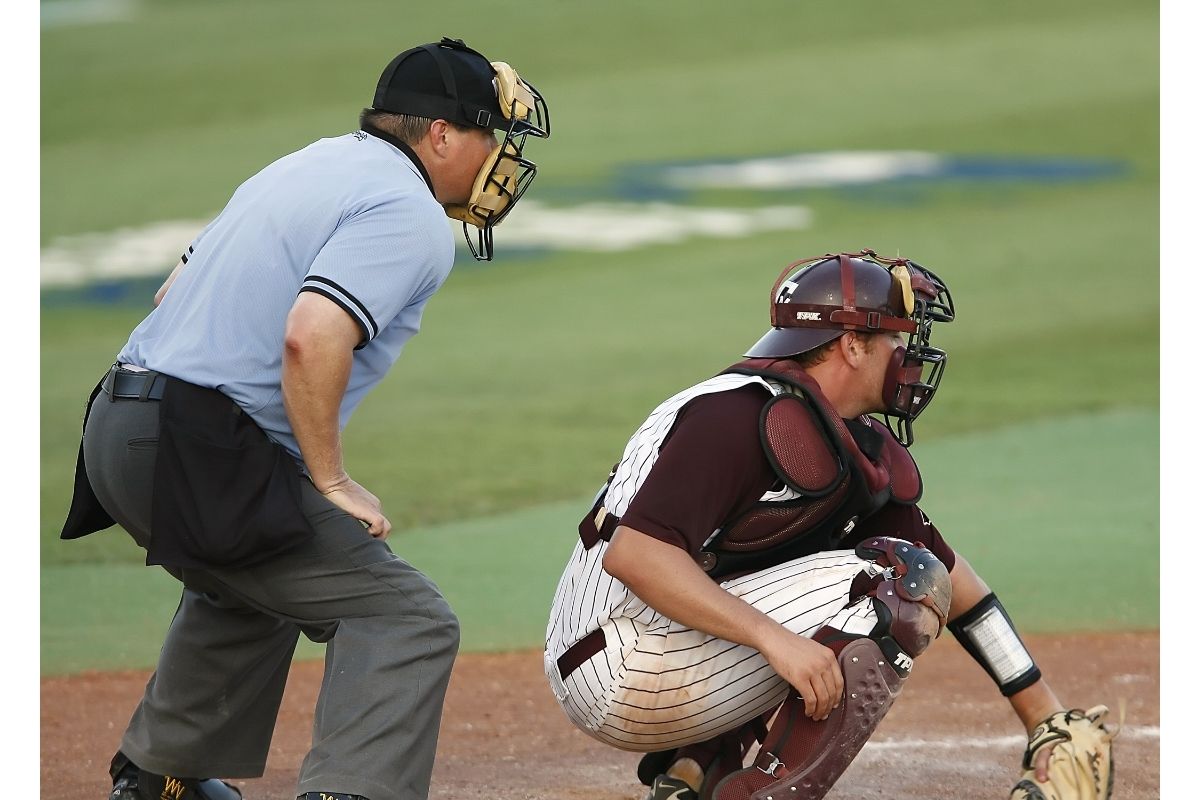

Becoming A Seasoned Umpire
If you’ve made it to the MLB Umpire Evaluation Class and you’ve passed it, you’re in a better position of being picked to become a professional Minor or Major League Baseball umpire.
Regardless of where you go first, all umpires start in the Minor league. If you don’t want to go to the Major League, you can just keep doing what you’re doing and work happily as a Minor League Baseball umpire.
If you do want to make it to the Major League though, you will have to work through the ranks of Minor League first.
In the MBL Umpire Evaluation Class, you will be watched and evaluated by the instructors, and if you stand out, you will be recommended for hire to the presidents of the Rookie and short-season Class A Leagues.
If you make it to Triple-A baseball, you will start to be considered for the Major League.
Staying in the Minor League for those who wanted to make it to the Major League though, don’t be discouraged! You can still have a very successful and stimulating career in the Minor League just as much as in the Major League.
Patience And Understanding The Odds
It is important to understand that opportunities to be discovered as an umpire are few and far in between.
If you are dead set on becoming a professional umpire in any league of baseball, you have to be open to the possibility of not making it to either the Minor or Major League.
Turnover of umpires in the field is considerably low, so you could be waiting a while before you get the chance to play, if you get the chance at all.
Your best chance of getting to play and getting a breakthrough is to be selected as a fill-in for a Major League umpire who is currently on vacation.
While you’re filling in for them, you have the opportunity to shine. Play your best and show the team you’re playing for that you are not expendable and would be an asset to them.
Conclusion
It’s a lot of work to become a professional umpire, and even more so to become an umpire for the Minor and Major leagues.
If you have enough patience and you’re good at standing out, you have a higher chance of making it and being successful in these leagues.
You could be waiting between 4 to 5 years before your breakthrough, but if you’re passionate about it and you persevere, you may eventually make it!
- Can You Play Pickleball on Grass? Tips and Tricks - June 12, 2023
- Do Pickleballs Wear Out? Everything You Need to Know - June 12, 2023
- Can You Play Pickleball on Concrete? A Guide to Playing on Hard Surfaces - June 12, 2023

